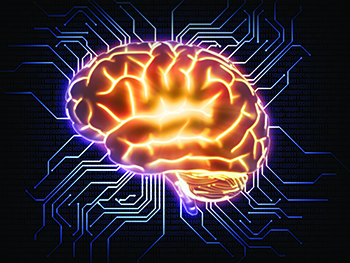Can Humanism Survive the Coming Transhumanist Revolution?

Image: © Mopic | Dreamstime.com
What of worries that technological enhancements will only ramp up inequality, leading to permanent and unbridgeable divides between the haves and the have-nots? While inequality in overall wealth is real, technology may be the exception to the trend. Kurzweil and other techno-optimists argue that innovation drives technology prices down, thereby assuring equitable distribution. They have a point.
Look at the single most important piece of recent computing technology, the smartphone. Steve Jobs introduced the iPhone in 2007. Today, smartphones are everywhere—even in the poorest regions of the world. Smartphone sales in India shot up more than 200 percent in 2013. In sub-Saharan Africa, nearly one in five people have smartphones and more than half are projected to gain them by 2017.
DAWN OR DOOM?
The astonishing spread of communications technology represents a profound advance for humanism and its values. Simply by opening channels to kindred spirits, access to the Internet has given hope to LGBT people in isolated communities. Conversely, by delivering contrary worldviews into theologically monolithic communities, the Internet has fueled rising skepticism toward religion.
Such trends give humanism a mandate to be the force that guides the transhumanist revolution to a just and humane conclusion. Clearly, some of the concerns expressed here are legitimate. Unbridled capitalism, spurred on by automation, could trample employment. Unequal access to technology could lead to a new feudalism. Military development of AI could lead to horrific consequences. The Singularity could bring about an AI superbeing that regards us as vermin.
Before examining how humanism can respond, let’s consider the alternative: a halt to progress. Bill McKibben, the influential environmentalist, has laid down the marker for this position in a book whose title says it all: Enough. For many, sustainability has come to mean a new pastoralism, based on small farms and local foods.
Sounds nice, but even if possible, it would actually be awful. The world’s seven billion people are now mostly urban. Like it or not, we rely on large-scale, high-tech farming. Reversing the scientific advances in agriculture of the last century to reinstitute family farms would lead to mass starvation. The “Green Revolution” led by Norman Borlaug caused yields in developing countries to increase five-fold from 1950 to 2000, saving a billion people from famine.
That’s not to say that the present is perfect. Far from it. Overfishing, monoculture, superweeds, and a swarm of other threats need to be addressed. But answers must come from scientifically informed progress, not privileged nostalgia. Even if we hung onto only the most desirable technologies of the present, without continued progress we’d be doomed. As the 2013 burst over Chelyabinsk, Russia, reminds us, unless we detect and deflect it, sooner or later a celestial object will wipe us out.
SHAPING THE FUTURE NOW
It’s up to humanists to champion that central humanist value: progress. But scientific and technological progress is hardly sufficient. For humanism to survive, humanists must press for social, economic, and political progress.
To name but a few issues, legal LGBT equality now can pave the way for acceptance of all sorts of adult consensual relationships in the future—a development that religious conservatives fear but humanists embrace. The abolition of corporate personhood can help stave off oligarchy, while the reinforcement of human rights and the advancement of animal rights secure the principle that sentience is what deserves moral regard and societal protection. This will become a critical question as humans and technology blend and artificial intelligence comes to life.
The wise use of technology, harnessed by a democratic political system that represents the interests of all humanity, will be essential to meet the challenges of climate change. We live at a moment of extreme cynicism about government and business. Short of divine intervention or the Singularity itself, nothing but an apt combination of regulation and innovation can get us through our fossil-fuel induced straits.
Finally, humanists, free from beliefs in divine rule, are best suited to chart a course that will successfully integrate human affairs with the Singularity, if and when it happens. Though Susan Schneider and others are right to worry, humanity may yet have a role to play after the rise of a superintelligent, omni-capable, globe-spanning being. Such an entity would have strong incentive to ensure that it has no virtual rivals, from online viruses to competing AI beings. That would leave it a monolithic intelligence. For just that reason, it might welcome the companionship of a few billion creative, fun-loving, flesh-bound minds. For a species that has long yearned for a supreme and just power to manage its unruly affairs, there may come to be such a thing as a god after all.
Click here to read “The ‘Disruptive Technologist’: Q&A with Caltech’s Virgil Griffith”
